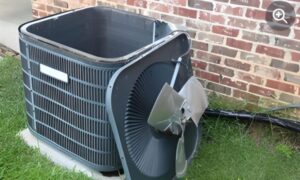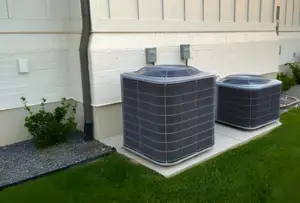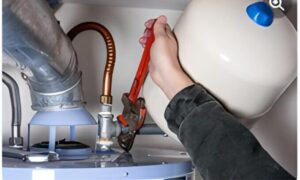As the temperature begins to drop and the chilly winds start to blow, the importance of a reliable and efficient heating system becomes evident. A cozy home is not just a matter of comfort, but also a necessity for overall well-being.
However, before you rush into upgrading your heating system, there are several crucial factors to consider. From evaluating the condition of your current furnace to exploring the benefits of a new system, this discussion aims to provide you with the necessary information to make an informed decision.
So, if you want to ensure a warm and welcoming home during the cold months ahead, keep reading to discover the key considerations and expert advice that can transform your living space into a cozier haven.
Benefits of Upgrading Your Heating System
Upgrading your heating system offers a multitude of advantages, including improved efficiency, enhanced comfort, and increased property value.
One of the primary benefits of upgrading your heating system is the improvement in energy efficiency. Newer heating systems are designed to operate more efficiently, reducing energy waste and lowering your heating bills.
Additionally, an upgraded heating system can provide enhanced comfort by delivering more consistent and even heat throughout your home. This can eliminate cold spots and drafts, creating a more comfortable living environment.
Furthermore, upgrading your heating system can increase the value of your property. Potential buyers are often attracted to homes with modern and efficient heating systems, making it a worthwhile investment.
Considerations Before Replacing Your Furnace
When considering the replacement of your furnace, there are important factors to take into account to ensure a smooth and efficient transition.
Firstly, it is advisable to replace your furnace before it fails completely to avoid emergency replacement during colder months. Timing is crucial, and replacing your furnace during fall or summer allows for better scheduling and installation.
Upgrading your HVAC system not only increases comfort but also improves energy efficiency and property value. Additionally, servicing your HVAC system before winter ensures safe operation. Using an aging furnace can be dangerous and may lead to higher costs.
Therefore, it is crucial to consider these factors when contemplating the replacement of your furnace to make an informed decision that aligns with your heating needs and budget.
Factors to Consider When Upgrading Your HVAC System
Considerations must be taken into account when upgrading your HVAC system to ensure optimal performance and energy efficiency. To help you make an informed decision, here are four factors to consider:
- Size: The furnace should be the right size for your home's space and heating needs. An undersized unit will struggle to heat your home adequately, while an oversized unit may cycle on and off frequently, wasting energy.
- Cost: The cost of replacing a heating system depends on various variables, including the type of system, labor costs, and any necessary modifications to ductwork. It's essential to get an accurate quote from a reputable HVAC provider through an on-site consultation.
- Environmental Impact: Many buyers now prioritize environmentally-friendly heating and cooling systems. Look for energy-efficient models that reduce your carbon footprint and lower utility bills.
- Long-Term Considerations: If your AC unit is also nearing the end of its service life, it may be more cost-effective to replace both units simultaneously. This ensures a properly functioning HVAC system for the long term.
ReplACing FurnACe and AC Together: Is It Worth It?
Replacing both your furnace and AC unit simultaneously can be a worthwhile investment for long-term HVAC system functionality and efficiency. There are several reasons why it may be worth it to replace both units together.
Firstly, if both units are nearing the end of their service life, replacing them together ensures that you won't have to deal with unexpected breakdowns or emergency replacements in the near future.
Additionally, older models may have shorter lifespans due to improper installation or maintenance, so replacing them together can provide a fresh start with properly functioning units.
Moreover, if your AC unit uses discontinued refrigerant, it is advisable to replace it alongside the furnace to ensure compatibility and optimal performance.
Lastly, replacing both units at the same time allows for better coordination and compatibility, resulting in improved overall system efficiency and performance.
Finding a Dependable Heater Replacement Service
Are you in need of a reliable and professional heater replacement service? When it comes to replacing your heating system, it is crucial to find a dependable provider that can ensure a seamless installation process.
Here are some key factors to consider when looking for a heater replacement service:
- Experience: Look for a company with a proven track record and years of experience in the HVAC industry.
- Certification: Choose technicians who are certified by organizations like NATE (North American Technician Excellence) to guarantee their expertise and knowledge.
- Reputation: Research customer reviews and testimonials to ensure the company has a solid reputation for providing quality service.
- Service area: Make sure the provider operates in your community and can offer prompt assistance when needed.
Frequently Asked Questions
How Often Should I Replace My Heating System?
It is recommended to replace your heating system before it fails completely to avoid emergency replacement during colder months. The frequency of replacement depends on factors such as the age, condition, and maintenance of the system.
What Are the Signs That My Furnace Needs to Be Replaced?
Signs indicating the need to replace a furnace include frequent breakdowns, uneven heating, high energy bills, strange noises, and a furnace that is over 15 years old. Consult with a reputable HVAC provider for an accurate assessment.
Can I Install a New Heating System Myself, or Do I Need to Hire a Professional?
It is highly recommended to hire a professional for the installation of a new heating system. Professional technicians have the expertise and knowledge to ensure a safe and proper installation, maximizing the system's performance and longevity.
Are There Any Tax Credits or Incentives Available for Upgrading My Heating System?
Yes, there are tax credits and incentives available for upgrading your heating system. These incentives vary depending on your location and the type of system you choose. Consult with a qualified HVAC professional to explore the options available to you.
What Is the Average Cost of Replacing a Heating System?
The average cost of replacing a heating system varies depending on factors such as the type of system, size of the home, and any necessary modifications. It is best to consult with a reputable HVAC provider for an accurate quote.
Conclusion
In conclusion, upgrading your heating system can greatly improve the comfort and energy efficiency of your home.
Considerations such as the size of the furnace and the cost of installation should be taken into account before making a decision.
It is also advisable to replace both the furnace and air conditioning units together if they are nearing the end of their service life.
Finally, finding a dependable heater replacement service, such as Action Air Conditioning & Heating Installation, is essential for a reliable and professional installation.








